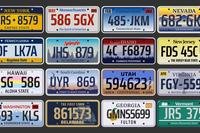During a Permanent Change of Station — or PCS — service members spend an average of $5,000 in out-of-pocket, non-reimbursable costs according to data form the Military Family Advisory Network (MFAN). When you consider that most military personnel make PCS moves about every two to four years, that adds up to a substantial amount of money. Here are some tips to make sure you don't pay more than you have to, and ways to limit the financial worry and stress associated with PCS.
To minimize your exposure in a move, you must understand what the military and Uncle Sam will cover. This topic is too complex and varied to cover just in this column, so we'll focus on the big items here. But anyone facing a PCS move should consult with their military branch or base transportation and finance resources to determine the full extent of the government's reimbursable expenses.
Your move will generally be handled by the Transportation Management Office (TMO) or as a Personally Procurred Move (PPM), previously known as a Do It Yourself Move (DITY). If you work through the TMO, they will plan a move using a relocation company, removing much of the worry and stress.
However, while a PPM makes you responsible for coordination, it also offers an opportunity to make some extra money. In a PPM, the government will reimburse you what it would cost them to move up to your maximum authorized weight allowance (determined by pay grades and dependents). In some cases, they will even prepay some of this money. If you plan well and spend less than the government's payout, you can keep the difference.
There are several types of reimbursements during a military move. Here are four. You can also learn more about a PPM here.
- Military personnel can be reimbursed for costs incurred in travel from one permanent duty station to another. When traveling by military or commercial vehicle, this is generally a per diem. If traveling by private auto, this is usually a mileage reimbursement.
- A Dislocation Allowance (DLA) can be paid to military personnel as part of their move. It is meant to partially reimburse you for expenses that would not normally be covered by other programs.
- You have the right to a permissive 10-day TDY (Temporary Duty) as part of your PCS move. This gives you the ability to take days that do not count against your leave to find new housing, etc. at your new duty station.
- You can elect to have the government store all or part of your household goods during your new assignment up to your maximum weight allowance as determined by the military.
There are a number of other entitlements military personnel can take advantage of during a move that you can research online or learn about at your base resource centers. It is equally important that as you prepare for a PCS, you consider the proactive planning and budgeting steps you can take to lessen the financial impact of a move.
- If you haven't already done so, the first step in a move is to make a list of all your financial accounts: bank accounts, credit cards, insurance policies, etc. Note those that need to be closed, which ones will require new relationships, or which simply demand a change of address. Track progress on your list to maintain a quick snapshot of account status.
- Build a comprehensive budget. Learn exactly what the military will cover in your move and understand what you are obligated to provide. Be sure to identify what you will have to pay up-front as well as what you'll need to purchase once you arrive, including new utility fees, housewarming needs, etc.
- Determine if you'll need additional insurance to cover your belongings — including any auto being shipped in transit — during the move. Begin by learning what is offered under military policy and then work with your movers or an insurer to cover the remainder. Having the right amount of insurance can turn a potential disaster into a minor inconvenience.
- Set up your finances to account for frequent moves. This means consider online banking alternatives so your cash is available no matter where you are stationed in the US. In addition, use online banking so you can pay bills from afar. You should also choose insurers that are licensed and available in all 50 states.
- Pay all outstanding bills before your move and close out local accounts such as utilities. This will eliminate the possibility of losing track of overdue bills during the chaos of a move. You may be entitled to reimbursed deposits in some cases so be sure to leave a forwarding address.
- Take advantage of the move as a way to shop for lower rates on some financial products. For example, a new location can mean different insurance rates. Be sure to obtain competitive quotes from additional insurers as part of your due diligence.
- Finally, revisit the budget you created in step one to make sure it is accurate. This will give you a blueprint for your next PCS and should be used as a guide for how much to save in a PCS Rainy Day Fund between now and then. It will be much easier to dip into a savings account next time versus raiding your cash on hand. Consider an online savings account so it's even easier to access and transfer funds.
The key to successfully managing your finances in a PCS move is to be proactive. Plan ahead — by being well informed and in front of the curve it is possible to limit your exposure and possibly even make some money.
One Last Thing
Make sure you are ready for your next PCS with homeowners or renters insurance. Compare insurance rates and coverage with our insurance quote comparison tool.












